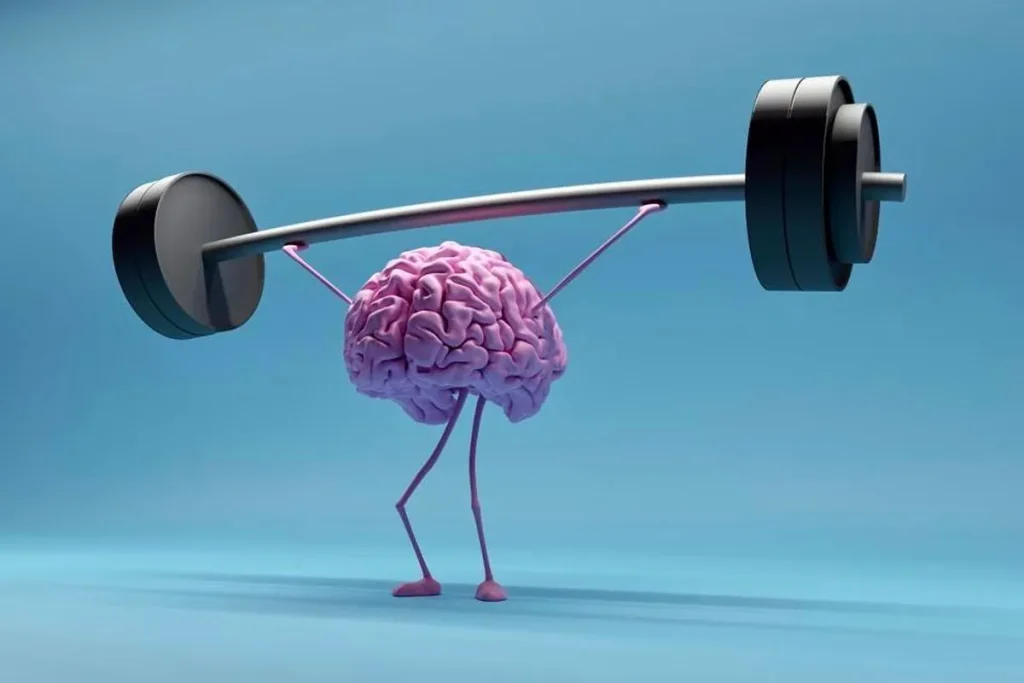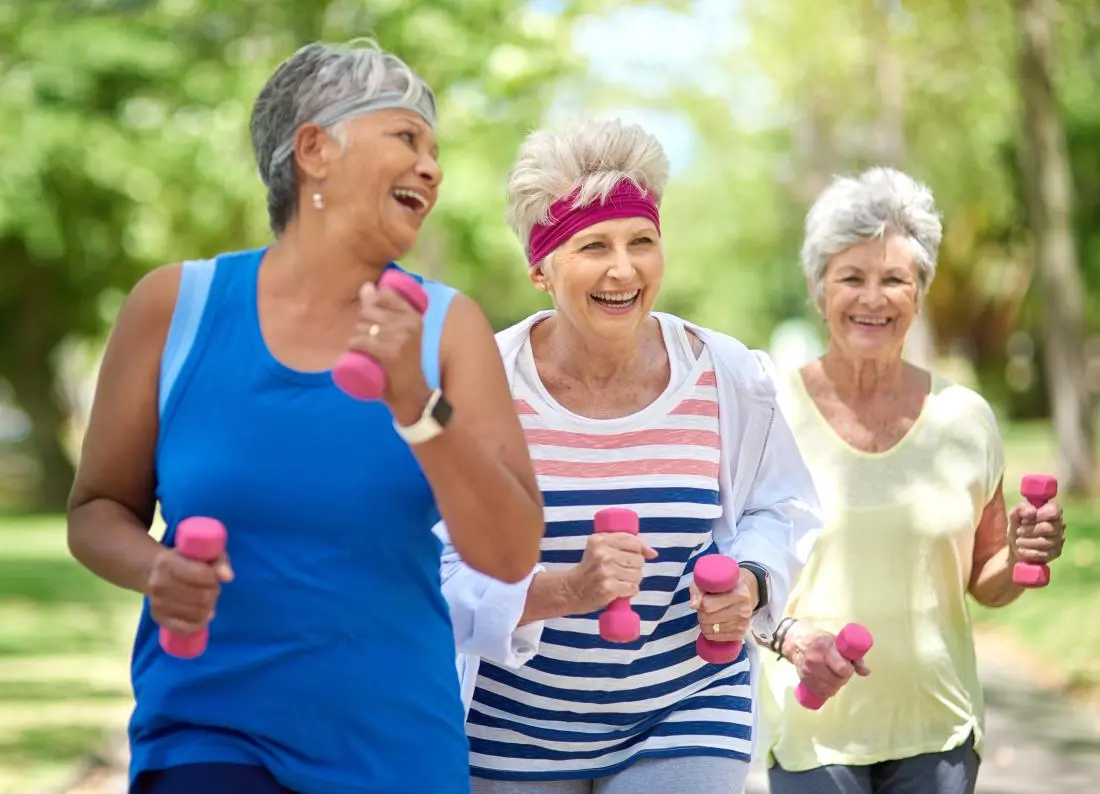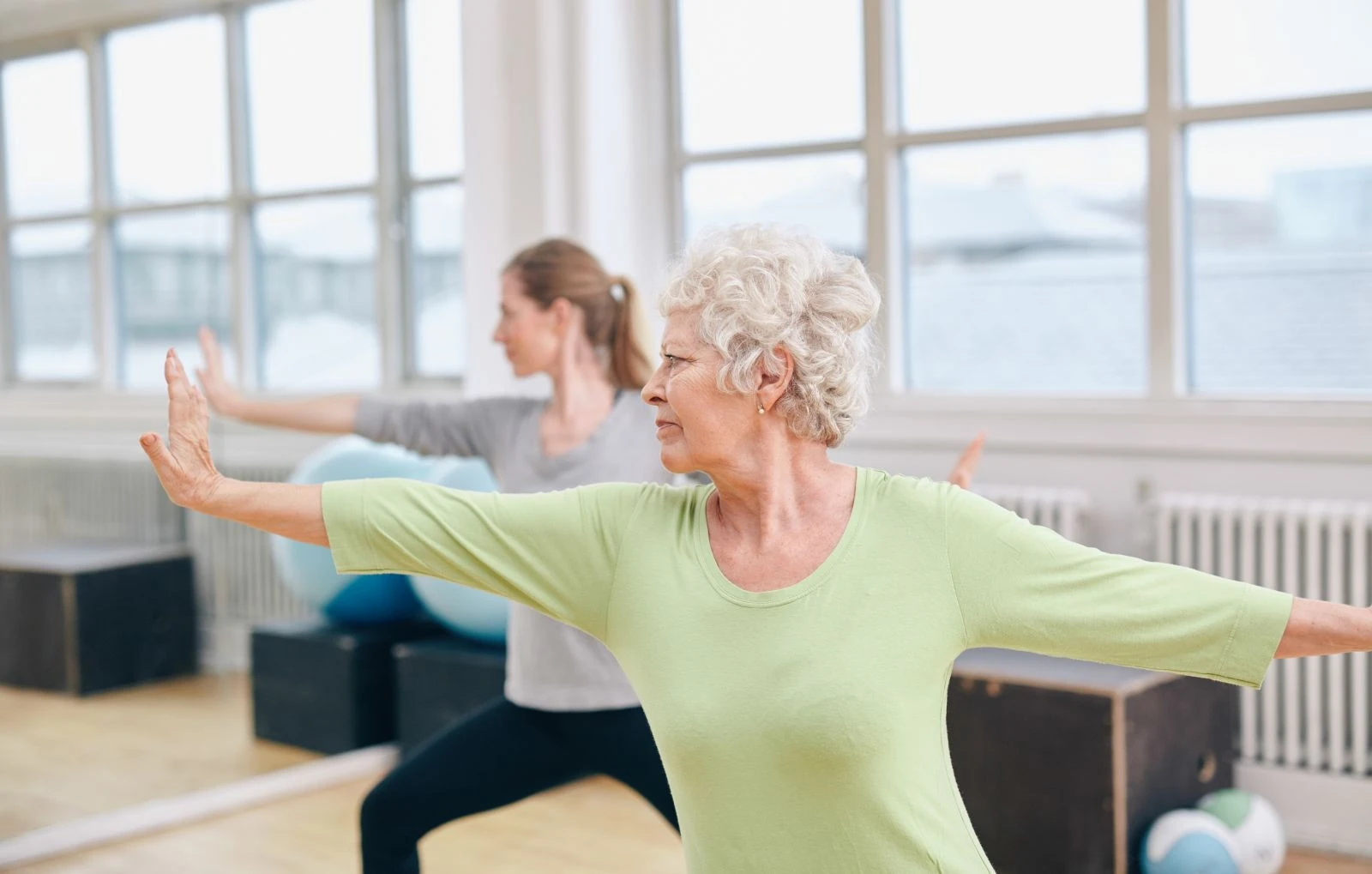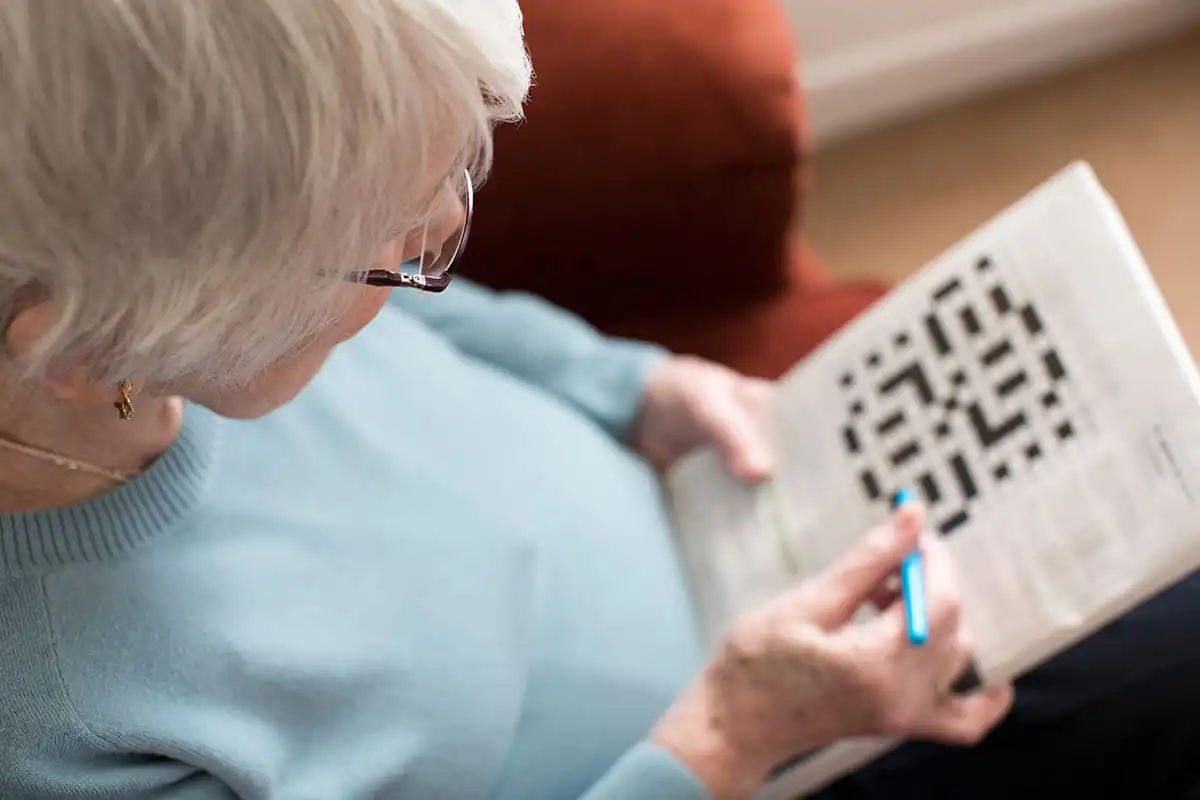
8 Best Brain Exercises for Elderly + Benefits
Brain exercises for elderly are one of the best treatments for Alzheimer’s disease. As you know, due to the aging and reaching old age, not only do the organs and tissues of the body weaken, which causes various physical diseases for the elderly, but aging also causes them to suffer from many and various mental and mental disorders in addition to physical diseases.
Considering that all bodily functions are influenced by the brain, and brain cells control all bodily activities, it is essential to take measures during old age to prevent damage to the brain and brain cells, and also use strategies to strengthen and improve the efficiency of the brain in old age. One of the strategies and methods that strengthen and improve the function of brain cells in old age is the use of mental exercises.
Exercise directly affects brain health, improves mental abilities, and promotes brain growth. A review of studies show that physical activity increases the level of certain proteins in the brain, which helps strengthen brain neurons and improve memory. But which brain exercises for elderly are more beneficial? In this article from humanhealthmag, we will discuss this topic.
Benefits of Brain Exercises for Elderly
As mentioned above, brain exercises for elderly are very useful for strengthening the mind and preventing Alzheimer’s disease. However, in addition to preventing Alzheimer’s, it also has other benefits, which we have mentioned below. These benefits include:
- Building self-confidence in the elderly, which allows them to perform some of their daily tasks and reduces their need for assistance in performing tasks and meeting their needs
- Preventing amnesia; using brain exercises and movements keeps brain cells active and reduces the likelihood of the elderly developing mental and emotional disorders such as amnesia
- Mental exercises in the elderly prevent distraction in the elderly
- The elderly person can communicate better with their surroundings
- Increased coordination between body parts
- Faster reaction time in the elderly
- Creating interest in attending gatherings and improving socialization for elderly with peers
- Brain exercises for elderly increase the morale, motivation, and energy of the elderly

Why Should We Exercise to Improve Brain Function?
Physical activity boosts brain health! Yeah, Exercise is an effective way to prevent Alzheimer’s, improve memory, and enhance learning ability, which is very beneficial for brain growth and strengthening. Adults who sit for at least 3 hours a day are at risk of thinning of the brain’s medial temporal lobe. This part of the brain is responsible for creating new memories, and long-term damage to it increases the risk of dementia.
Try to engage in physical activity in any way you can daily. It’s interesting to know that even standing, walking, and moving in any way are beneficial for brain strengthening, and the worst possible situation for brain health is sitting and not moving.
Brain exercises for elderly, especially aerobic activities like walking, running, cycling, and swimming, can help increase blood flow to the brain. These exercises increase the number of blood vessels and neural synapses in the brain and help increase brain volume. Yoga and Tai Chi, in addition to improving physical health, can also reduce stress and increase mental focus.
Physical activity increases the number of new nerves cells and also increases proteins related to the survival and growth of brain neurons. Studies show that all types of exercise, including low-intensity mental exercises and resistance exercises, are effective in improving cognitive function and strengthening memory. If you are not a fan of exercise, it is better to start your activity with mild exercises and increase the intensity of the exercises after a while; with this approach, you will have both a healthy body and a healthy brain.
8 Brain Boosting Exercises for Elderly
How to boost brain health in aging? First of all, you should know that physical activity in any form is beneficial for strengthening the brain and improving memory. Walking, dancing, yoga, aerobics, and all other exercises are useful for improving brain function. Among them, some exercises have more benefits for the brain and help brain function in a shorter period of time. In the following section, a list of the best exercises for the brain is mentioned.
Aerobics: The Best Exercise for the Brain of Elderly
Aerobics is one of the best exercises for increasing blood flow to the brain, which can also help increase the size of the brain’s hippocampus. The hippocampus is a part of the brain that plays an important role in verbal memory and learning.
A study of the brains of more than 2,000 60-year-olds showed that the more physical activity elderly people have, the larger their brain hippocampus becomes, and these changes were clearly visible in people over 75 years old. Therefore, it is better to know that it is never too late to start exercising and physical activity. The elderly should have at least 150 minutes of moderate-intensity physical activity per week to improve brain function.
Cycling
Cycling is the best brain exercises for elderly and improving cognitive function in people over 50. Studies show that people who cycle 3 times a week for 30 minutes each time are less likely to develop memory-related diseases. Cycling helps improve brain health and prevent the progression of Alzheimer’s disease and reduces inflammation in the brain.

Brisk Walking
Another useful exercise for the brain is brisk walking. Studies show that walking more than 4,000 steps a day can have positive effects on the memory of the elderly. If you are not a fan of exercise, it is better to walk every day to have a healthy brain and improve memory power.
Weight Training
Weight training and working with weights is another useful exercise for the brain, the effects of which will be clearly visible after 6 months. Studies show that working with weights can improve memory and cognitive function better than balance exercises and cause more blood to pump to the brain.
Yoga
The results of a 2016 study on people 55 and older showed that doing yoga once a week for 12 weeks can greatly improve their verbal and visual memory and improve memory and learning ability by creating new neural pathways in the brain.
Tai Chi
Studies show that people who practice Tai Chi for 12 weeks experience more activity in the frontal cortex of the brain after a while and are less prone to cognitive and memory problems. Tai Chi exercise helps improve thinking, reasoning, better planning, and problem-solving and is considered one of the best exercises for improving brain function.
Dancing
Dancing is best physical activity for improving cognitive function. A 20-year study of the elderly shows that dancing can reduce the risk of dementia by up to 76%. It is interesting that the effectiveness of dancing in preventing dementia is up to 2 times more than daily studying. On the other hand, dancing improves cognitive function and memory.
Gymnastics
Gymnastics is a great brain exercises for elderly to increase coordination between memory, physical strength, and concentration. This sport requires a lot of mental accuracy and concentration. Doing gymnastics helps improve the connection between the brain and the body and improves memory and increases the ability to learn skills and also increases intelligence.
Key Points for Brain Exercises for Elderly
How to boost brain health in aging? Brain exercises for seniors can prevent them from developing many mental and intellectual illnesses. Those responsible for caring for the elderly at home should have a regular mental exercise program for the elderly to take a firm step in preventing mental illnesses in their elderly loved ones. You can also strengthen your elderly loved one’s mind by doing the following exercises. These exercises include:
- Using Artistic Activities
Engaging in artistic activities such as painting or calligraphy significantly engages brain cells. This prevents the elderly person’s thoughts from drifting towards negative and stressful thoughts, and prevents them from becoming isolated and depressed. Additionally, by supporting elderly with depression and doing activities like painting, the elderly person develops a spirit of innovation, feels useful and effective, and learns social skills more than before.
- Teaching Synonyms and New Words to the Elderly
Another brain exercise for elderly is teaching them synonyms and new words. This engages the elderly person’s brain and mainly affects the memory and learning part of the brain, enabling them to memorize words with various meanings. One of the benefits of this activity is preventing mental and emotional illnesses such as amnesia.

- Mental Exercise in the Elderly Using Puzzles
Using brain card games and puzzles is very effective in opening the mind and engaging the brain. Playing appropriate mental games directly affects brain cells and engages them, reviving the sense of innovation and creativity in the elderly. The elderly person needs to spend a considerable amount of time daily to complete it, which keeps their mind and brain active for a longer period throughout the day.
- Using Intellectual Games Like Chess
Using intellectual games like chess keeps the elderly person’s Brain very active. Engaging in chess creates a desire to win in the elderly, prompting them to use their brain more to avoid mistakes and win the game.
- Using Music
Listening to music throughout the day can trigger memories in the elderly. However, it is important to use songs that remind the elderly of good and positive memories, engaging their mind.
- Using Reading and Writing Skills
This activity strongly activates the elderly person’s brain cells and keeps their mind alert. This is also one of the mental exercises for the elderly.
Concluding Remarks
In this article, you became familiar with “Brain exercises for elderly.” Strengthening elderly memory requires special attention and care, which can be improved by using appropriate techniques. Methods such as regular mental exercises, consistent physical activity, a healthy and balanced diet, and the use of stress management techniques can play an effective role in improving memory function.
On the other hand, active social connections and participation in group activities can also stimulate the brain and strengthen memory. Using new methods such as meditation, yoga, and mindfulness techniques can also help improve memory. Additionally, techniques such as repetition and review of materials, note-taking, and the use of memory tools like calendars and reminders can be helpful in this regard.
Ultimately, maintaining, strengthening, and improving elderly memory requires attention to various aspects of their lives. By using a combination of the mentioned methods and the support of family and society, the elderly can be helped to strengthen their memory, have a better mind, and improve their quality of life. Paying attention to the mental and physical health of the elderly and creating a supportive and encouraging environment are the most fundamental steps in this direction.

Brain Exercises for Elderly Frequently Asked Questions
How Does Exercise Help Boost Brain in the Elderly?
Exercise strengthens the brain of the elderly by increasing blood flow to the brain, reducing stress and anxiety, producing different hormones, strengthening brain neural networks, improving sleep quality, and increasing social interactions.
What Is the Best Brain Boosting Techniques for the Elderly?
Doing brain games, solving crosswords, exercising and social activities are among the best and most effective memory strengthening techniques for the elderly.
How Much Should Seniors Exercise to Improve Their Brain Function?
For brain health and improved cognitive function, it is better for older adults to exercise at least 150 minutes per week with moderate intensity. Doing aerobic exercises intermittently with any intensity for 6 to 10 minutes a day can also create amazing changes in improving brain function and your body health.
Is walking good Brain Exercises for Elderly?
Brisk walking is one of the best exercises for improving brain, which helps improve brain blood supply and increases concentration and prevents Alzheimer’s.
